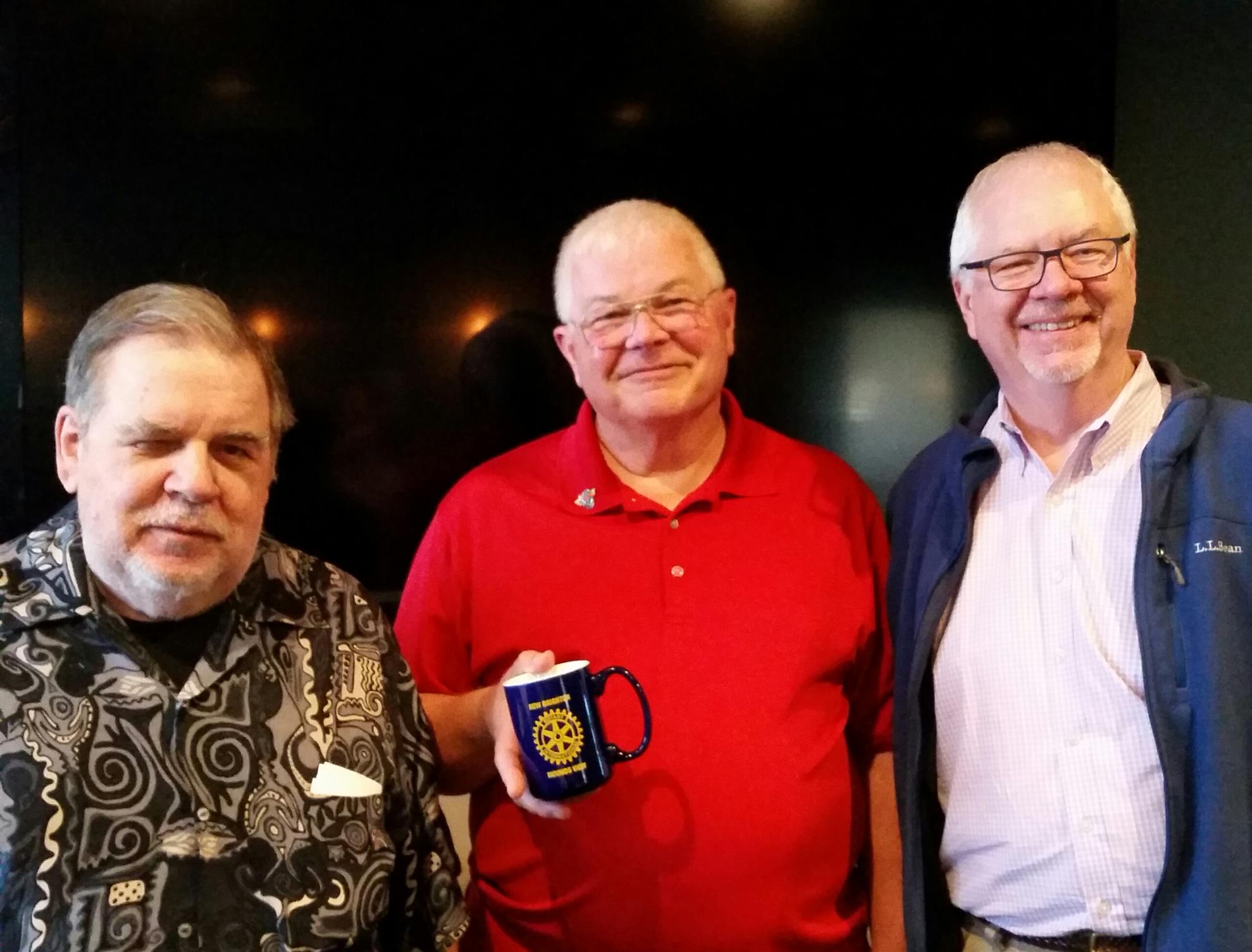Meeting Recap - October 18, 2016
Jim Kadechka opened the meeting with the Pledge of Allegiance and the Invocation.
Glenna Dibrell introduced our visitor, Mike Cylkowski, a commercial real estate agent who was referred to us as a potential member by last week's visitor, Chris Ledbeter, from US Bank.
Dana Rebelein read a letter from CEAP, thanking us for our $1,000 contribution.
George Winiecki was back with us after a bout with pneumonia.
Dana reported that she was happy to have bought a townhome.
Gerry Tietz's son is back safe and sound after an adventure trip to Peru.
Our "miracle man" Paul Fournier was feeling well enough to join us today.
Nils Friberg reported that his wife Peg should be returning home this coming week after teaching in Thailand. Nils seems to be surviving in her absence but I'm sure the dishes and laundry must be piling up by now.
Geoff Hollimon returned from the East Coast in time to miss most, but not all, of hurricane Matthew's fury. Nice to have you back, Geoff!
George Winiecki stumped us with some Alaska purchase trivia. Did you know that we bought Alaska from Russia in 1867 for just 7.2 million dollars. That's just 2 cents per acre.
John Risdall attended long time Rotarian Roland Wilsey's funeral recently. Roland was a giant in Rotary, playing a big part in so many areas and, especially, helping to start many Rotary Clubs, including our own. Roland's legacy lives on.
MaryAnn Bawden reminded us that next week is District Governor Jim Hunt's visit, and we would like to have a big crowd to welcome him.
Cindy Carlson introduced our speaker, Dr. Tom Hendrickson. Tom was here to talk about a microcredit program that he spearheaded in rural Iringa, Tanzania. Iringa is the poorest area of Tanzania, with an average annual family income of $300 per year. Because there are no banks or financial services of any kind, borrowing and saving have been virtually non-existent. Malnourished children and high infant and child mortality are the norm and school is not an option for the vast majority of the population. Enter Tom, with his microcredit program, and things are beginning to change. Tom's program, called Iringa Hope, provides small loans so farmers can get good seed and fertilizer to produce a viable crop from the depleted soil. The typical loan is between $300-450 with the following stipulations:
· Loans must for the purpose of producing income
· Borrowers must save 1/3 of the loan amount
· Borrowers must get two others (non-family) to guarantee the loan
· Interest is 2-3% per month
· Loan term is 6-9 months
For a farmer, the loan virtually guarantees an increase in crop yield, so farmers can feed their families and have enough crop left to sell in town. This allows them to pay off the loan and have enough saving left to borrow again for the coming year. The increased income allows these families to purchase higher protein foods which prevents malnutrition. Families are also able to pay for schooling and eventually provide a permanent home.
Because the programs are administered at the local level, community support is high, but the program has a waiting list due to limited funding. Tom's Lakeville Rotary club has risen to the challenge by committing to a $200,000 Global Grant project to raise funds to expand the Iringa Hope project. The total needed before District and International matching funds is $120,000, and Tom and his club have already raised $100,000, leaving $20,000 which can, hopefully, be raised by contributions from area Rotary Clubs. John, Tom and Jim are shown below.
